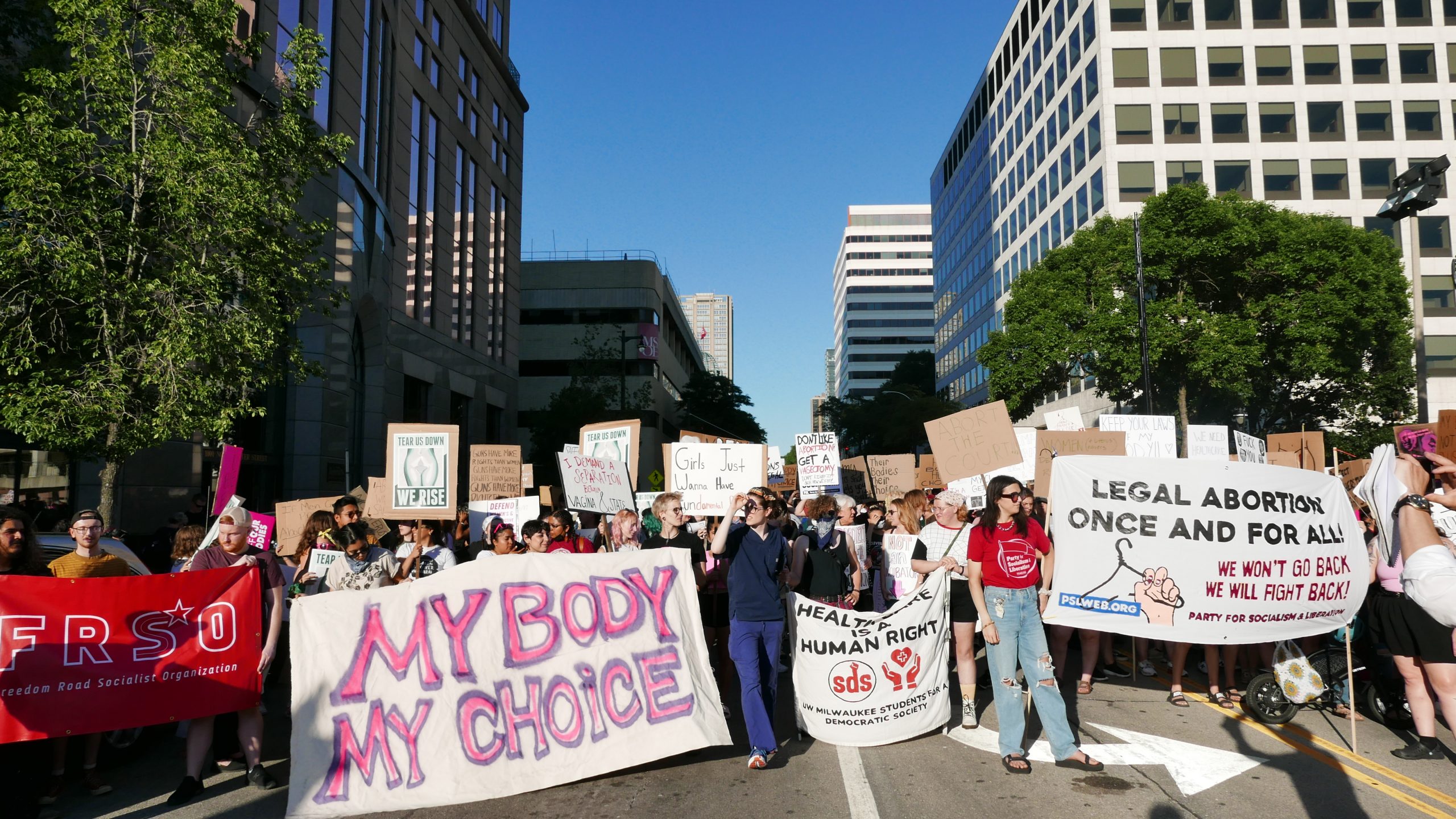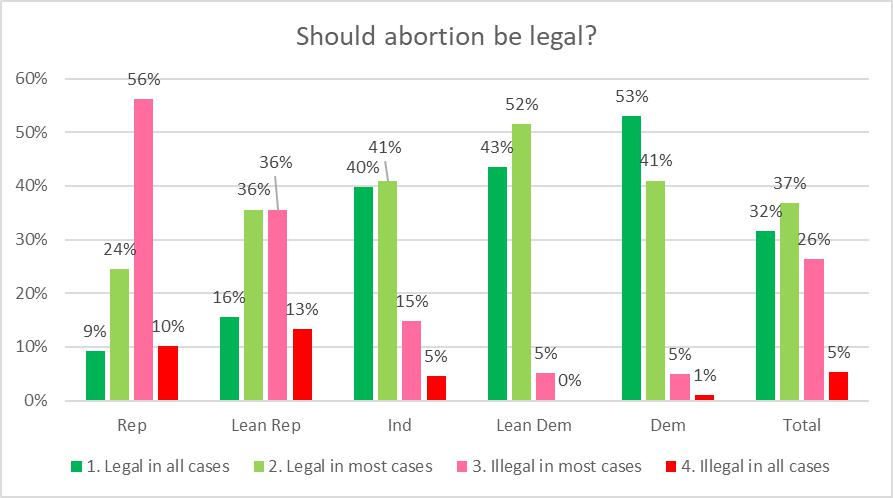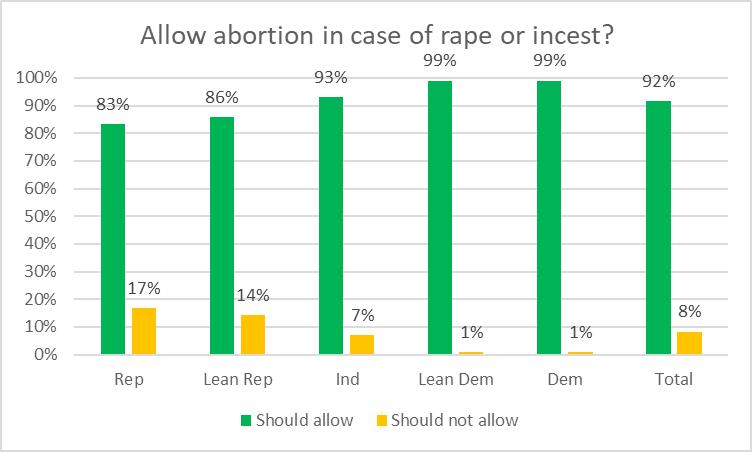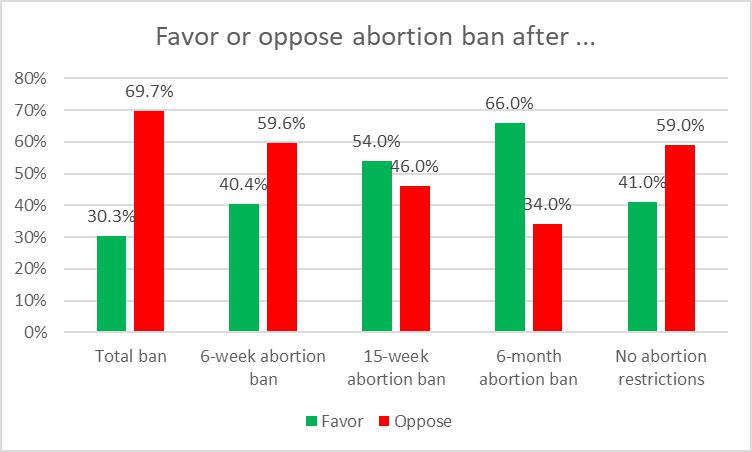Is A Compromise on Abortion Possible?
Actually, polling data for Wisconsin suggests an approach most would favor.

Abortion rights protest gathers to march at E. State St. and N. Water St. Photo by Graham Kilmer.
With the recent US Supreme Court ruling to reverse Roe v. Wade, the question arises—what do the voters want? Several recent Marquette Law School polls have included questions that get at the answer.
The graph below shows Wisconsin voters’ response when asked whether abortion should be legal. The first five of the groups of columns show the responses based on the voters’ political affiliation—Republican, independent who leans Republican, Independent, Independent who leans Democratic, and Democrats. The last group of columns show the total response.
Still, there remain a quarter of Republicans who support allowing abortions in most or all cases, as well as half of Republican leaners. This is one more reason for Republicans to make the next election about something else—anything else—rather than abortion.
One problem with interpreting the results comes with the two middle groups: what are the cases they feel should be exceptions? To what extent did members of these groups have the same cases in mind?

Should abortion be legal?
In the most recent (August 2022) survey, the Marquette Poll asked a question I had not seen before: Should abortion be available in the case of rape or incest? As the next graph shows, the response was overwhelming: only 8%–but 17% of Republicans–said that abortion should not be available in the case of rape or incest.
Wisconsin’s 19th century abortion law says nothing about a possible rape or incest exception. (And has some have noted, there is a certain consistency to those opposing the exception, if one believes that abortion is murder. After all, the fetus had no role in the rape or incest.)

Allow abortion in case of rape or incest?
The question then arises as to when in the development of a fetus should an abortion ban take effect? In another poll, Marquette asked voters whether they would favor or oppose bans taking effect at 6 weeks, 15 weeks, and 6 months, as well as a total ban on abortions or no restrictions. This poll, however, used a national sample of voters.
The following graph shows the result. The 6-month abortion ban has the highest ratio of support to opposition. Six months is about 26 weeks. Currently, viability is estimated to be around 22-24 weeks.

Favor or oppose abortion after 6 months?
It is impossible to design a legal framework for abortion that would satisfy everyone. Clearly there is a small but intense group that would object to any law that allowed abortion. But democracy requires compromise. In the long run, allowing a minority to impose their religious values on the majority is unlikely to be sustainable.
What would a law look like that reflected the views of the majority of Wisconsinites? I suggest there would be at least two elements. First, the polls suggest that banning abortions only after viability is widely accepted as a commonsensical dividing line. Up until then it should be a pregnant person’s decision whether to have an abortion.
Second, there is an overwhelming consensus that abortions should be allowed in cases of rape and incest. A law with those two provisions would have the support of two-thirds of voters.
If you think stories like this are important, become a member of Urban Milwaukee and help support real, independent journalism. Plus you get some cool added benefits.
Data Wonk
-
Why Absentee Ballot Drop Boxes Are Now Legal
 Jul 17th, 2024 by Bruce Thompson
Jul 17th, 2024 by Bruce Thompson
-
The Imperial Legislature Is Shot Down
 Jul 10th, 2024 by Bruce Thompson
Jul 10th, 2024 by Bruce Thompson
-
Counting the Lies By Trump
 Jul 3rd, 2024 by Bruce Thompson
Jul 3rd, 2024 by Bruce Thompson



















No! Abortion is a womens right to choose. We have alreqdy seen that you cant negiotiate with facists.